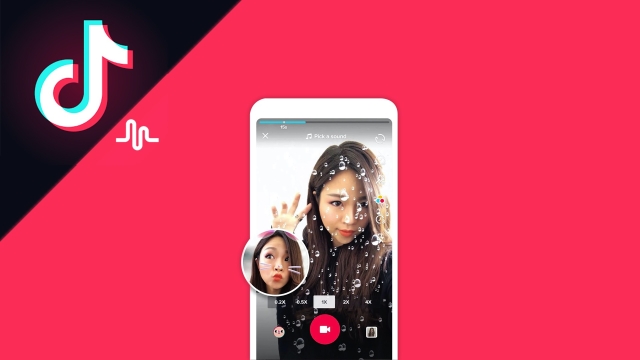
In recent years, TikTok has emerged as a fast-growing social media platform that has captivated the attention of millions worldwide. What sets TikTok apart from other platforms is its unique format that allows users to create and share short videos ranging from dance routines, lip-sync performances, comedy sketches, and a myriad of other creative content. With its user-friendly interface and sophisticated algorithm, TikTok has become a hub for creativity, entertainment, and cultural trends.
From viral dance challenges to comedic skits, TikTok has become a powerful force in shaping modern culture and influencing societal trends. Its ability to rapidly propel individuals to fame and introduce new songs, dances, and memes into the mainstream has solidified its position as a cultural powerhouse. As users continue to flock to the platform in search of entertainment and connection, the TikTok effect on society becomes increasingly undeniable.
Impact on Content Creation
TikTok has revolutionized content creation by offering users a platform to express their creativity through short, engaging videos. With its user-friendly interface and diverse range of editing tools, TikTok has empowered individuals to unleash their artistic talents and showcase unique ideas to a global audience.
The app’s algorithm-driven For You page has leveled the playing field, giving aspiring creators a chance to go viral based on the quality and appeal of their content, rather than just their follower count. This has encouraged more people to experiment with different formats and styles, leading to a vibrant and dynamic content ecosystem on the platform.
Moreover, TikTok’s collaborative features have fostered a sense of community among creators, enabling them to duet, stitch, and remix each other’s videos. This interactive nature of the app has not only inspired collaboration and creativity but has also facilitated the rapid spread of trends and challenges, shaping the cultural zeitgeist in real-time.
Challenges of Copyright and Ownership
One challenge surrounding TikTok is ensuring that users respect copyright laws when creating and sharing content. With millions of videos being uploaded daily, there is a constant risk of infringement if users do not have the proper rights to use certain music, images, or other copyrighted material in their videos.
Another issue related to ownership on TikTok is the question of who owns the content that users upload. While users may create and upload their videos, TikTok’s terms of service stipulate that the platform has the right to use and distribute user-generated content. This raises concerns about ownership rights and the control users have over the content they share on the platform.
Despite efforts to enforce copyright policies and guidelines, there continue to be instances where copyrighted material is used without permission on TikTok. This has led to disputes and legal challenges, highlighting the importance of educating users about copyright laws and promoting ethical content creation practices on the platform.
Tiktok Video Downloader
Future Implications
As TikTok continues to dominate the social media landscape, its influence on culture is set to grow even further. Brands are increasingly recognizing the platform’s potential for marketing and reaching younger audiences. It is clear that TikTok’s impact will shape the future of digital advertising and brand engagement strategies.
Moreover, the trend of short-form video content is likely to become more prevalent across various platforms, as other social media giants adapt to keep up with TikTok’s popularity. This shift towards quick, engaging videos will revolutionize how content is consumed and shared online, paving the way for a new era of digital storytelling.
Looking ahead, the algorithms and features that power TikTok’s personalized content recommendations are expected to become even more sophisticated. This could have far-reaching implications for user behavior and content creation, ultimately reshaping how individuals interact with social media and consume information in the digital age.





